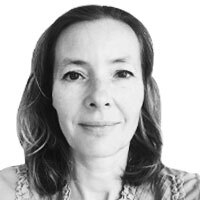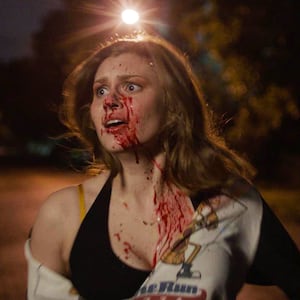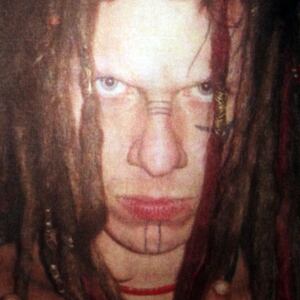This article was updated substantially at 5:15 a.m. EDT, October 18, 2019.
AMSTERDAM—The strange tale of a reclusive family in a small Dutch town grows curiouser and curiouser by the day.
The first headlines at the beginning of the week said that in a remote farmhouse outside the provincial Dutch village of Ruinerwold several people, all adults, were isolated for years in makeshift living quarters awaiting “the end of time.” But the story broke after one of them walked into a local café-bar—and then it developed he’d been posting on Facebook, Twitter, and LinkedIn about a family business.
Local officials have not been very forthcoming and some details remain vague. Are we looking at an apocalyptic cult or a social media publicity campaign, or maybe—as seems likely—a bit of both?
Ruinerwold is in the religious heartland of the Netherlands, in Dutch Bible Belt country. It is just a few miles from Staphorst, the religious center of the Orthodox Reformed Church, nicknamed 'the black stocking church’ because of its rigid views of worldly life. People in the area live a modest, rural existence, religion is never far away, and many of the communities are known as kind and hospitable.
The sleepy little town with its friendly inhabitants has never been exposed to the kind of shock and chaos it is experiencing days after the police stormed a farmhouse and found an entire family, as it seemed, in hiding.
A 58 year old man since identified as Josef B. was arrested outside the house after he refused to give the authorities access. Inside, police found one older man and five young adults—four women and one man, between the ages of 18 and 25—living in slapped-together quarters. The older man is believed to be the father of the younger adults.
Josef B. was detained and charged with kidnapping and endangerment of the health of others. Thursday the police also arrested the 67 year old father, identified formally as Gerrit Jan van de D. He was charged with deprivation of freedom, physical abuse to the health of others and money laundering.
The tip that led to the police raid came when Chris Westerbeek, owner of the local Cafe De Kastelein called the police after a confused young man walked into his bar a couple of times last week. The first time the 25 year old came in, sat down and ordered five beers, then he quickly left.
Then last Sunday he came in again and Westerbeek spoke to the local news station RTV Drenthe about it. In the interview he described the man as looking unkempt and disoriented. His hair was long, he had a small “dirty beard” and was wearing old clothes. Westerbeek tried talking to him: “‘Hey, buddy, how did you get here?’ I asked. The man admitted he ran away from a farmhouse nearby and needed help.” He told the barman he had not been outside the constraints of his family’s farmhouse for nine years.
“You could tell he had no idea where he was and what he was doing,” Westerbeek told RTV Drenthe. There were more younger siblings holed up in the house, but he said little else about what went on there.
The Daily Beast spoke to Westerbeek’s mother, who said he has since “gone into hiding” because of the media frenzy. “He had to tell the same story over 40 times," she said. “It all became a little too much.”
It’s not just the Dutch and international press roaming the quiet green lanes and hanging out in the two local cafes trying to figure out what went on in the farmhouse. Villagers who had no idea about the occupants or their beliefs gather to find out what they can.
The villagers say they did know the detained Jozef B. a bit. They had nicknamed him “the Austrian,” for his apparent nationality, and occasionally he would be seen loading up the trailer behind his Volvo with food and wood. He would drive it to the farm and then leave again, no-one knows where to.
The man was almost impossible to approach, Ruinerwold locals say. Neighbors would try, but he kept them away. Jans Keizer, a next door neighbour, told RTV Drenthe, “I am shocked and ashamed, that something like that could happen on our road. I think everyone on this road is feeling guilty for not doing anything. We only saw the man—he would wave when passing by in his big Volvo, but we would not speak.” Years ago, at a first encounter, Keizer said, “I was the one who gave him a traditional welcome, with wine and flowers, but when he took them, he said ‘thank you’ and went back in. There was no talking.” They haven't spoken since.
Josef B. was not the name of the person who rented the farm, and the owner of the property, a woman by the name of Alida Rooze appears to know very little about him. She was as oblivious to the fact a whole family was living there as the rest of the community. Rooze spoke to local newspaper Dagblad van het Noorden about it. “ We are speechless, that something like that happened in our house. We knew nothing at all. We rented out the house to one person several years ago, but are reading in the media that another man apparently lived there with children. We had no idea.”
Locals say Josef B. was seen in the past fixing the place up, and he built a big fence around it. But Josef B., as far as we know, has no blood relation to the people in the farmhouse.
Police spokesperson Evelien Aangeenbrug told RTV Drenthe late Thursday night the young adults were not always locked up, they were allowed to roam the premises. “Deprivation of freedom is not always a lock on the door,” she explained. Whenever someone would approach the farm—visible through a closed circuit camera system set up at the compound—they withdrew to a secluded area invisible from the outside. The group living at the house consisted of eight members, according to Aangeenbrug: the father and his five children found inside, plus the 25 year old who reported on the situation to the police, and Josef B.
The first reports by RTV Drenthe about the family waiting for “the end of time” have not had any independent confirmation, but not for want of trying.
There RTV Drenthe spoke to a former neighbor, Sandra Soer. On her street in Hasselt houses are built close together. It is a typical Dutch 1980s suburb with simple, affordable social housing, a place where it's difficult to hide an alternative lifestyle.
Soer, the former next door neighbor, says in the interview she knew of another three children older than those found in the Ruinerwold house, but offered no information on what happened to them.
In Hasselt, the family isolated itself, too. “They would quickly run into the car in the morning going to school–at least that's where I thought they were heading–and back to the house.” The children were never seen in the streets. “My daughter did play there, at the back of the house and would sometimes go in. 'Everything is made out of wood, Mommy,' she would say.” The father, Soer said, appeared to keep a tight grip on them all. She even suspected him of abusing his wife. “But we never got around to doing anything about it.”
A Facebook account has surfaced identified by several reputable Dutch publications as belonging to the 25 year old who found his way to the bar in Ruinerwold. And if “Jan Zon van Dorsten” is indeed the eldest boy from the farmhouse, his social media accounts give us another take on the story.
“Jan Zon van Dorsten” had been active on social media a decade ago. He has a Facebook account and has kept in touch with the world via platforms like Twitter and Linkedin. According to his page, the family moved to Ruinerwold in 2010, nine years ago, but then he dropped off the face of the earth, or at least off the World Wide Web. His Facebook account went silent for about nine years until suddenly, in June of this year, he resurfaced. About the same time he activated his Twitter account. Most of his posts show an interest in nature, environment and ecology. The pictures and texts he posted have a dreamlike, philosophical quality.
"Jan Zon van Dorsten" may also have wanted to generate income using Facebook to promote wood products apparently made by the family. The companies he links to are called Arikazan and Creconat. The latter is linked to Native Creative Company that, according to the Dutch tabloid AD, was searched by the police and is owned by Josef B.
One of the charges police leveled against both the father and Josef B. is money laundering because of a large amount of cash found during the raid. Local media mention an amount around €100,000 ($111,000). Police say at this point the provenance of the money cannot be determined.
On his LinkedIn profile page Jan Zon van Dorsten writes about his mother’s death in 2004. “For me, personal connection has always been at the forefront, thanks to my parents who have always devoted their time to our personal education. And the rest of their time? Friends. And the company always ran great! How is that possible, huh ...” it says on his profile. “In the meantime that time has passed ... in 2004 Mom passed away and every day we are happy to take care of Dad.”
That all ties in with the account from their neighbor Sandra Soer. The family left Hasselt in 2005, a year after the mother passed away, she said. It had been the only time Soer talked to the father. “He came to ask if he could come in. … 'I want to tell you my wife has died of stomach cancer,' he said, but how? Or what? I never saw an ambulance, or funeral car, I don't know if she died in hospital, or here, because he would give all the children a home birth, too. There was never a doctor present.”
The neighbor in Hasselt knew of an Austrian man named Josef B., too. He moved into the house next door to the family. They even made a door in the garden wall, connecting both houses. He apparently knew them before he moved to Hasselt and was, like them, always in a hurry, scared, unapproachable.
“It was as if he was under pressure,” said Soer, but she never thought Josef was pulling the strings. “It seemed like he was a bit afraid of the dad. It could be the father became ill and Josef B. took over.”
The Austrian newspaper Kronen Zeitung spoke to Josef B.'s brother, who said he has not been in touch for more than 10 years. "He was always looking out for his own interests," his brother claimed. The funeral of his father, his mother, he missed them both. "He was with a sect, thought he was better than Jesus."
Whatever old Josef B. believed, Jan Zon van Dorsten seems to have grown quite weary of the family cult’s lonely life. On his Linkedin profile he wrote, “Personal? Authentic? Life story? Value? Goals? Pfff, I thought. How should I incorporate all this into my story if I barely have it? What do you have when you are only 25, nothing? Or do you...”







